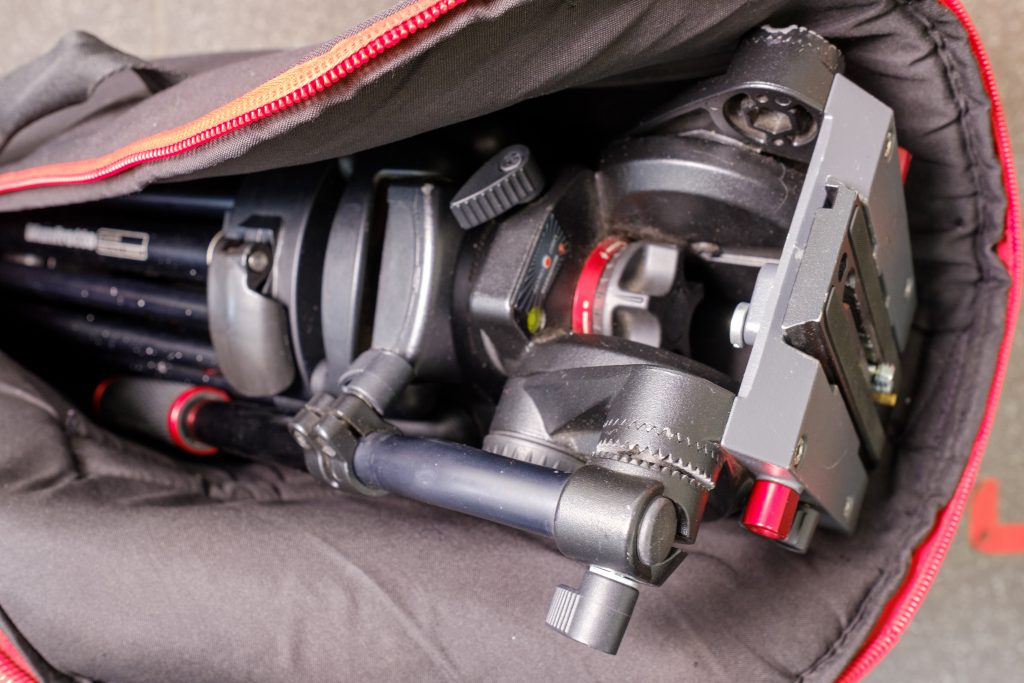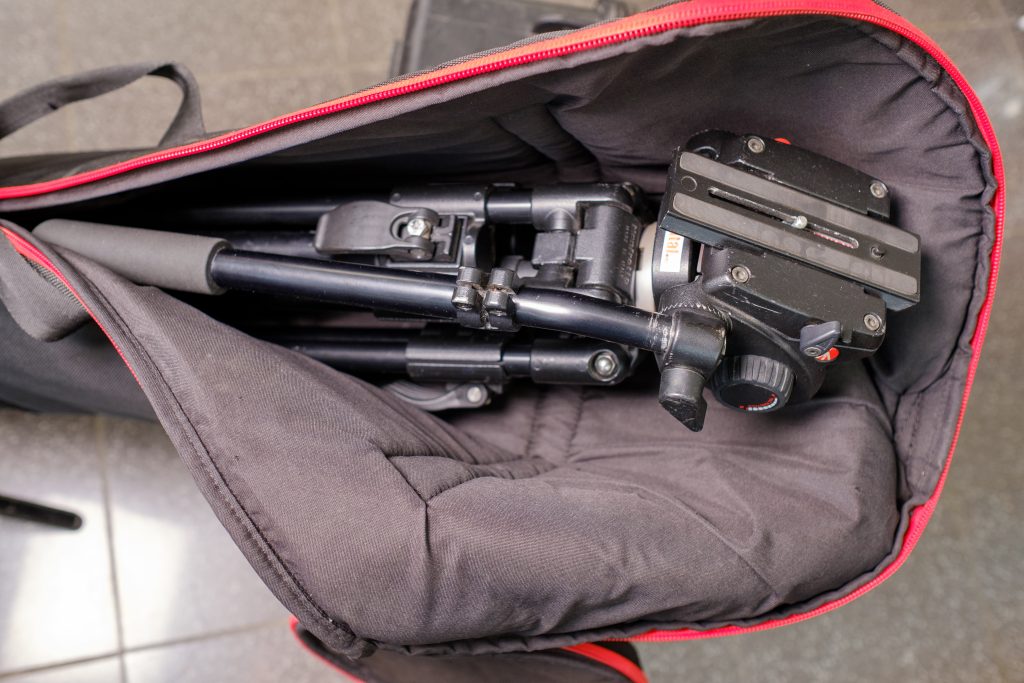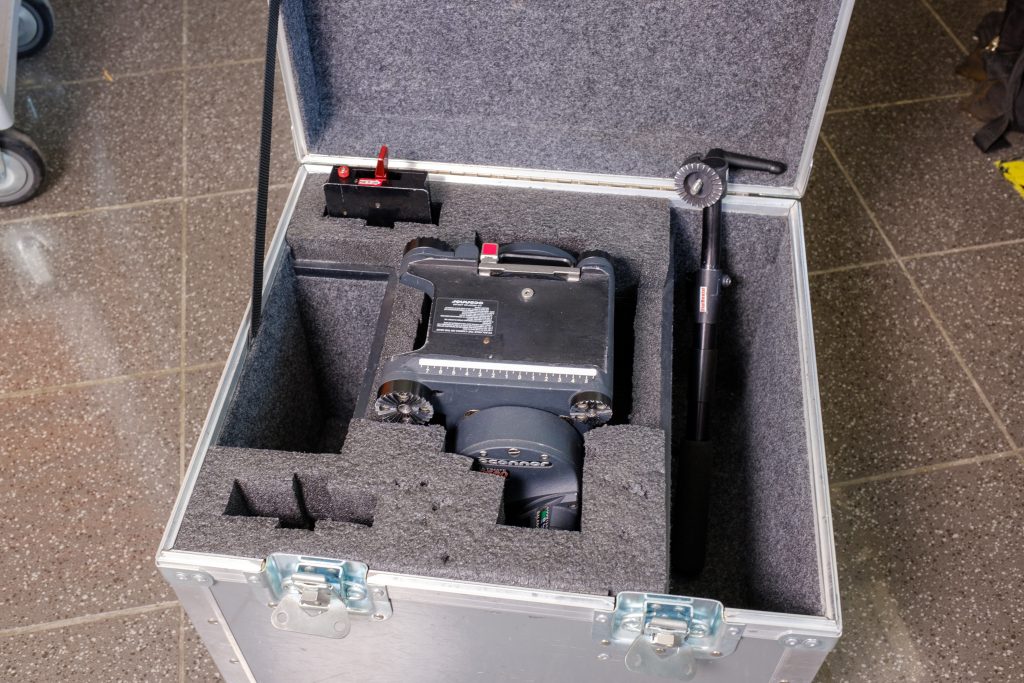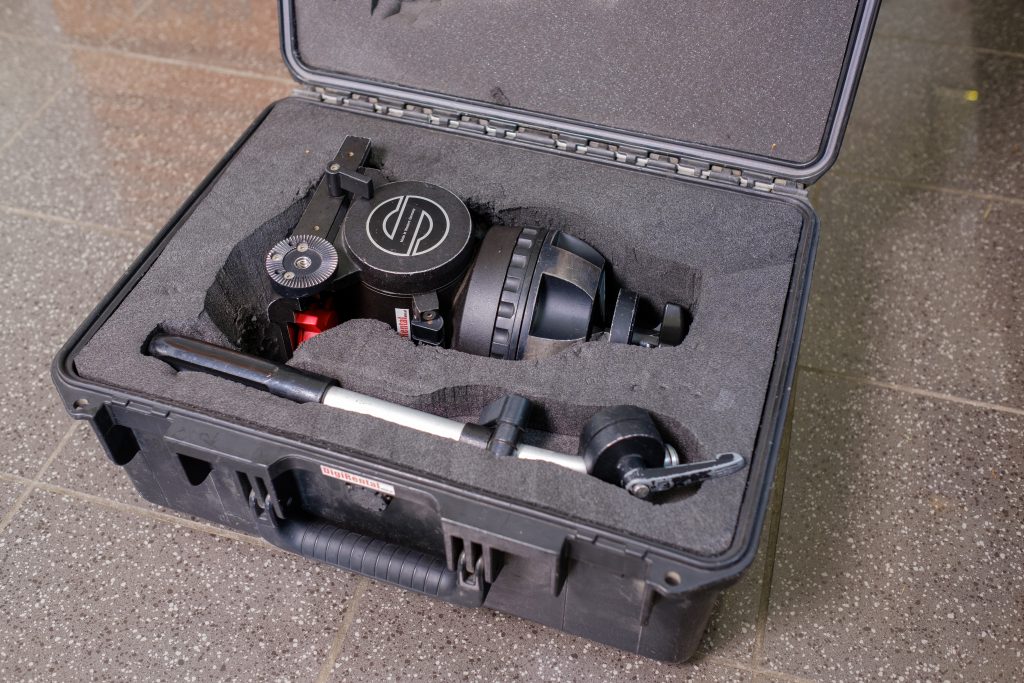How to correctly store your Fluid Head
During my years as a camera rental agent I have seen pretty much every way possible that a tripod head was stored or returned.
There are many theories out there that have either been taught in film schools, were passed on by older generations of filmmakers or simply thought up on how to properly handle tripod fluid heads.
The most common theories are:
- disengage all brakes and set drag to zero so the grease inside the head can flow and doesn’t develop a “flat spot” where the brake or drag was set to. When you use the head the next time there would be a bump where the brake or drag was set to
- loosen everything (brake, drag and the pan-bar mount) so the head can freely move and cannot get damaged during transport
- keep pan-bar in outward position, leave drag and counter balance engaged and push the pan-bar down so it is parallel to the legs and then set the brake and store
- fluid heads have to be stored in an upright position so the fluids can be evenly distributed and don’t cause “flat spots”
As a general rule you can follow common mechanical principles. You will most likely damage the fluid drag system by tilting your fluid head and then locking the tilt brake while fluid drag is engaged. Springs are not supposed to be under constant tension and therefor will wear quicker.
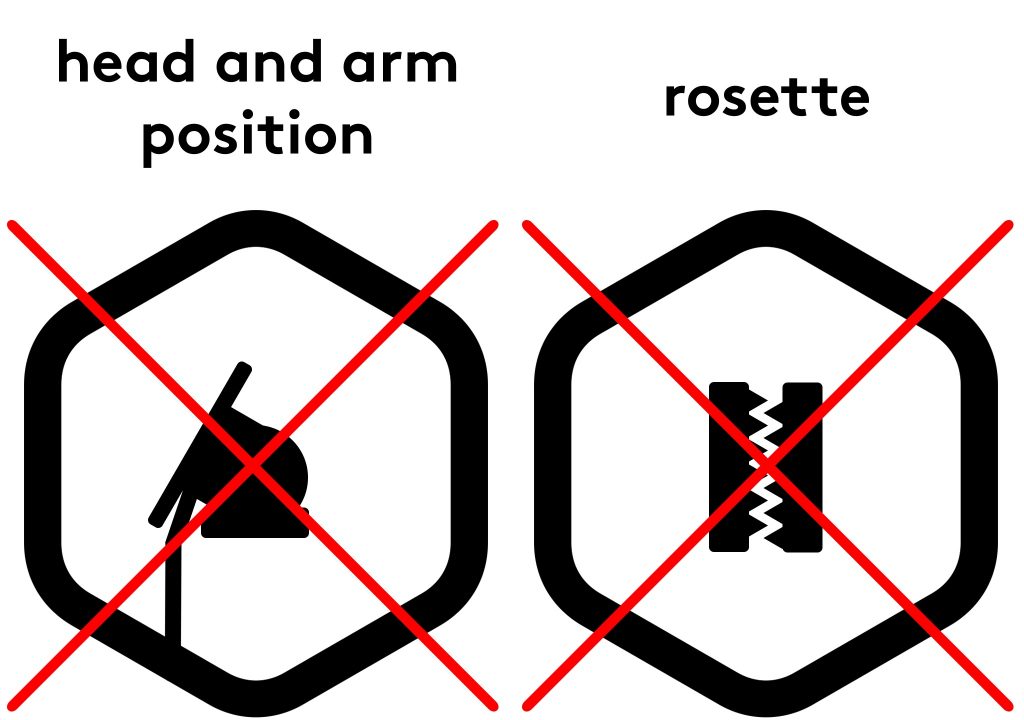
Also if you loosen the rosette mount for your pan handle so it has space to wiggle the teeth of your rosette will eventually brake because they are grinding against each other.
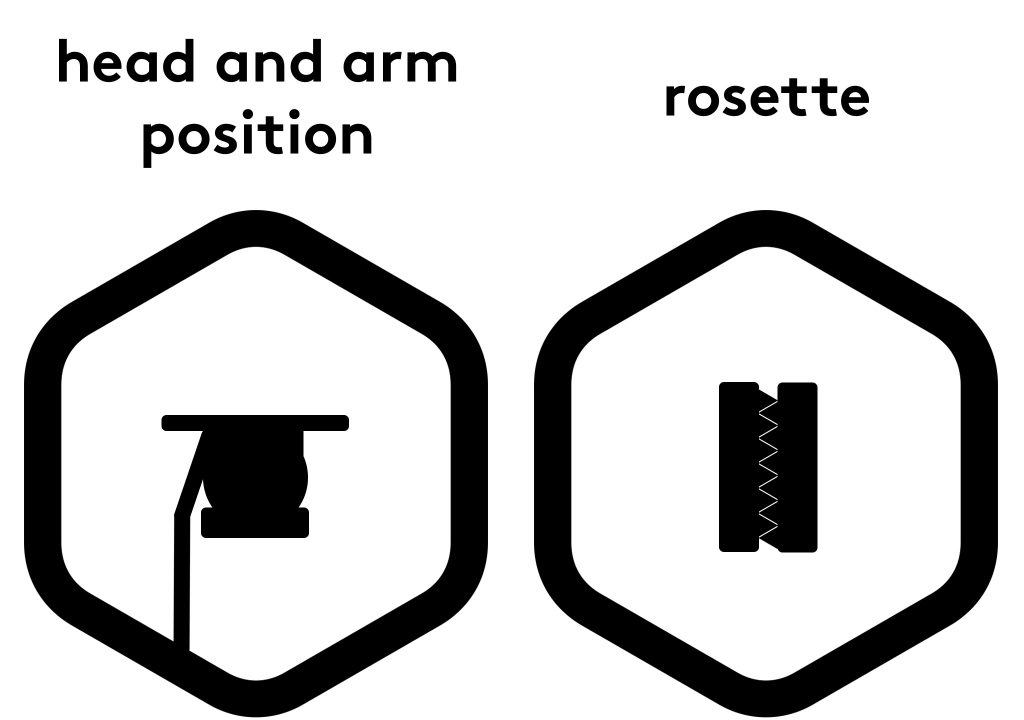
When it comes to correctly setting the brakes and fluid drag every manufacturer seems to advise slightly different methods. The only way to demistify this topic is to ask the actual people who build these fluid heads so I scoured various fluid head manuals and reached out to the manufacturers and have gotten the following responses:
Sachtler:
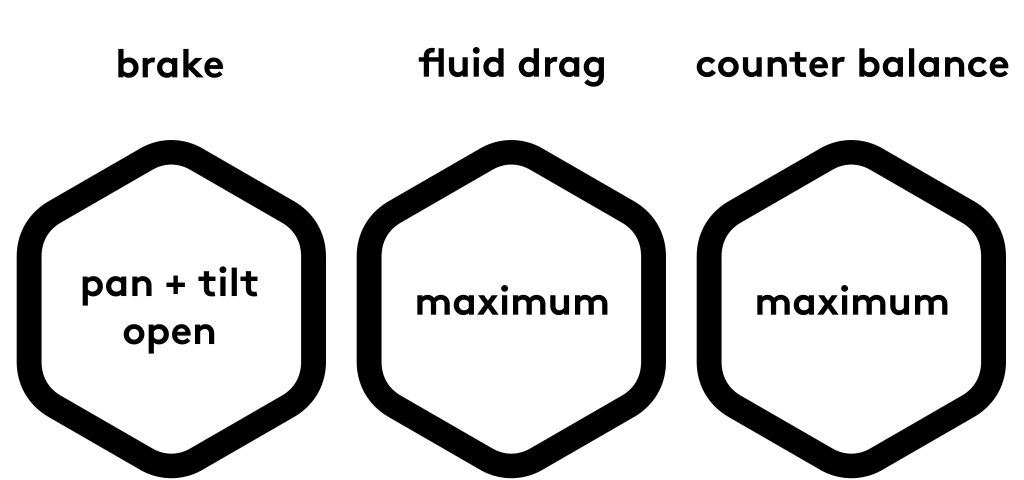
To ensure smooth operation of the setting rings for the damping over the long life time period of the fluid head, you should turn both setting rings from position “0” to maximum position, before and after the use of the fluid head.
– Sachtler Fluid Head Manual
Setting during transportation: the most important issue is to open both brakes – horizontal and vertical. Counterbalance and damping should be set to maximum position.
Adjust position of / remove the pan bar handle
O’Connor:
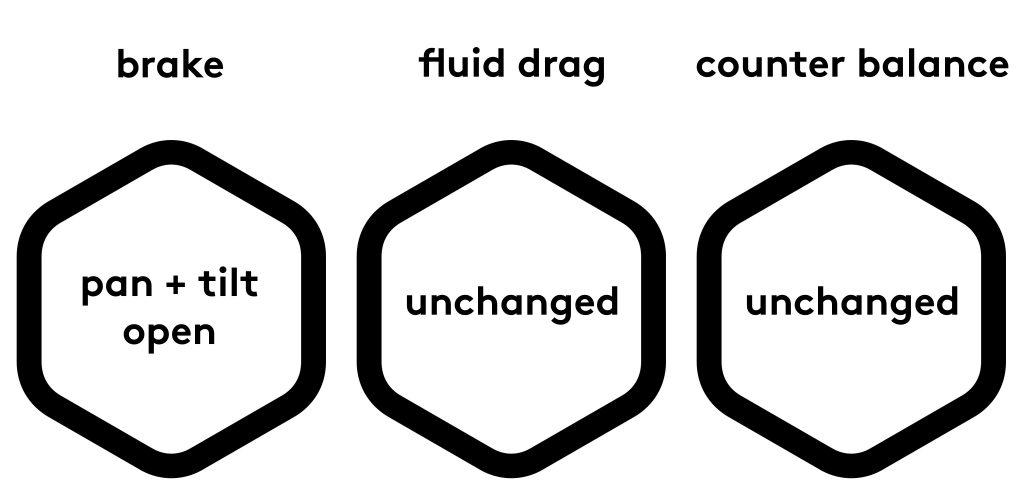
When shooting is finished and the head is to be stored, head settings (i.e. counterbalance and fluid drag) should be left unchanged. This will reduce wear on the head’s mechanisms and save time on the next shoot.
– O’Connor Fluid Head Manual
Miller:

The Fluid Head can be stored for extended periods; Miller recommends storage in a Miller case and the following:
– Miller Fluid Head Manual
Clean the external surfaces.
Keep in a dry place away from direct sunlight.
Loosen off Pan & Tilt Lock.
Manfrotto:
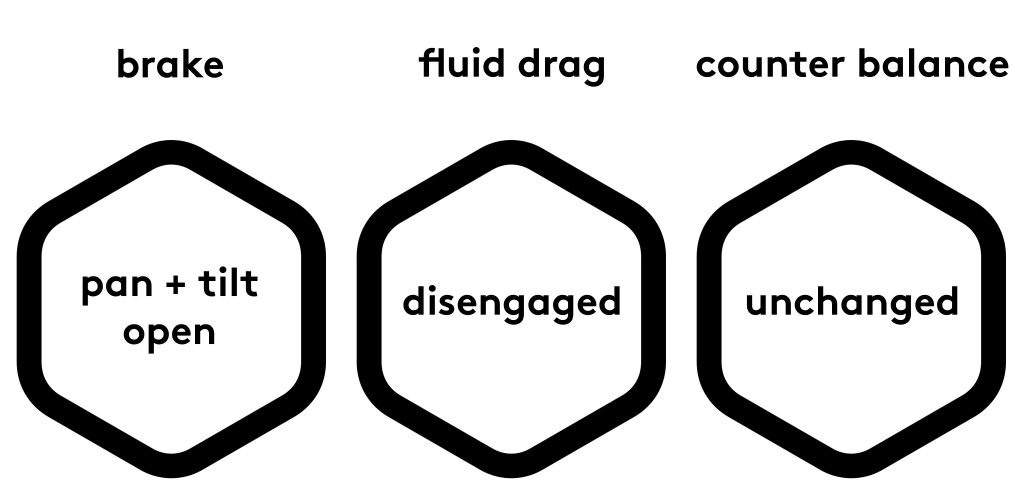
When not in use, the product must be stored with its Pan & Tilt brake and Drag disengaged with the plate holder in a horizontal position.
– Manfrotto Customer Support
If the head has a battery powered backlit spirit bubble, then in case of extended periods of disuse, remove the battery from the light source.
Ronford Baker:

For all of our fluid heads the pan bar will need to be removed as in-situ it does not fit in the case.
– Jeff Lawrence, Managing Director Ronford Baker
Fluid & counterbalance can be left as last used.
The brakes are best left unlocked.
